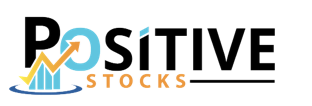Investing in modular home stocks can be an interesting option for investors looking to capitalize on the growth of the modular housing industry. Here are a few key points to consider when investing in modular home stocks:
- Industry Growth: Modular housing has gained popularity due to its cost-effectiveness, energy efficiency, and faster construction times. Consider the overall growth potential of the modular home industry and its projected market demand.
- Company Research: Conduct thorough research on modular home manufacturers and suppliers. Look for companies with a strong track record, reputable management team, and a focus on innovation and quality. Analyze their financial health, revenue growth, profitability, and market share.
- Market Demand: Evaluate the demand for modular homes in different geographic regions. Factors such as population growth, urbanization, housing affordability, and government support for affordable housing can influence the demand for modular homes.
- Competitive Landscape: Assess the competitive landscape within the modular home industry. Identify companies that have a competitive advantage, unique product offerings, or a strong market position. Consider their ability to adapt to changing market dynamics and technological advancements.
- Regulatory Environment: Stay updated on relevant regulations, building codes, and zoning requirements that may impact the modular home industry. Changes in regulations can affect the market outlook and potential growth opportunities.
- Financial Performance: Review the financial performance of modular home companies, including their revenue growth, profitability, cash flow, and debt levels. Evaluate their ability to generate sustainable returns for investors.
- Diversification: Consider diversifying your investment portfolio by investing in a mix of modular home manufacturers, suppliers, and related companies. This diversification can help mitigate risks associated with individual stocks.
As with any investment, it’s important to conduct thorough research, consider your risk tolerance, and consult with a financial advisor to make informed investment decisions. Investing in individual stocks carries risks, so it’s crucial to understand the potential rewards and volatility associated with the modular home industry before making any investment decisions.
why invest in modular home industry
Investing in the modular home industry can offer several potential benefits and opportunities. Here are some reasons why investors may consider investing in the modular home industry:
- Growing Market Demand: The demand for affordable and sustainable housing continues to rise, especially in urban areas and regions with housing shortages. Modular homes provide a cost-effective and efficient solution to address this demand.
- Cost and Time Efficiency: Modular homes are typically built in a controlled factory environment using standardized processes and materials. This results in reduced construction costs, faster build times, and improved construction quality compared to traditional on-site construction methods.
- Sustainability and Energy Efficiency: Modular homes are designed to be energy-efficient, incorporating features such as insulation, advanced HVAC systems, and sustainable materials. This appeals to environmentally conscious buyers and aligns with global efforts to reduce carbon footprints.
- Technological Advancements: The modular home industry continues to evolve with advancements in technology, including computer-aided design (CAD), building information modeling (BIM), and automation. These advancements improve design flexibility, precision, and overall efficiency.
- Scalability and Standardization: Modular construction allows for scalability, making it easier for companies to expand production capacity to meet increasing demand. Standardized processes and components also contribute to operational efficiency and cost savings.
- Government Support and Incentives: Many governments recognize the benefits of modular construction and provide incentives or support for affordable housing initiatives. This support can include grants, tax credits, and streamlined permitting processes, which can positively impact the profitability and growth of modular home companies.
- Real Estate Market Opportunities: Modular homes can be used for various applications, including residential housing, student housing, senior living, and emergency shelters. This versatility opens up opportunities to tap into different sectors of the real estate market.
As with any investment, it’s essential to conduct thorough research, evaluate the financial health and growth prospects of modular home companies, and consider your risk tolerance before making investment decisions. Consulting with a financial advisor can provide personalized guidance based on your investment goals and circumstances.










